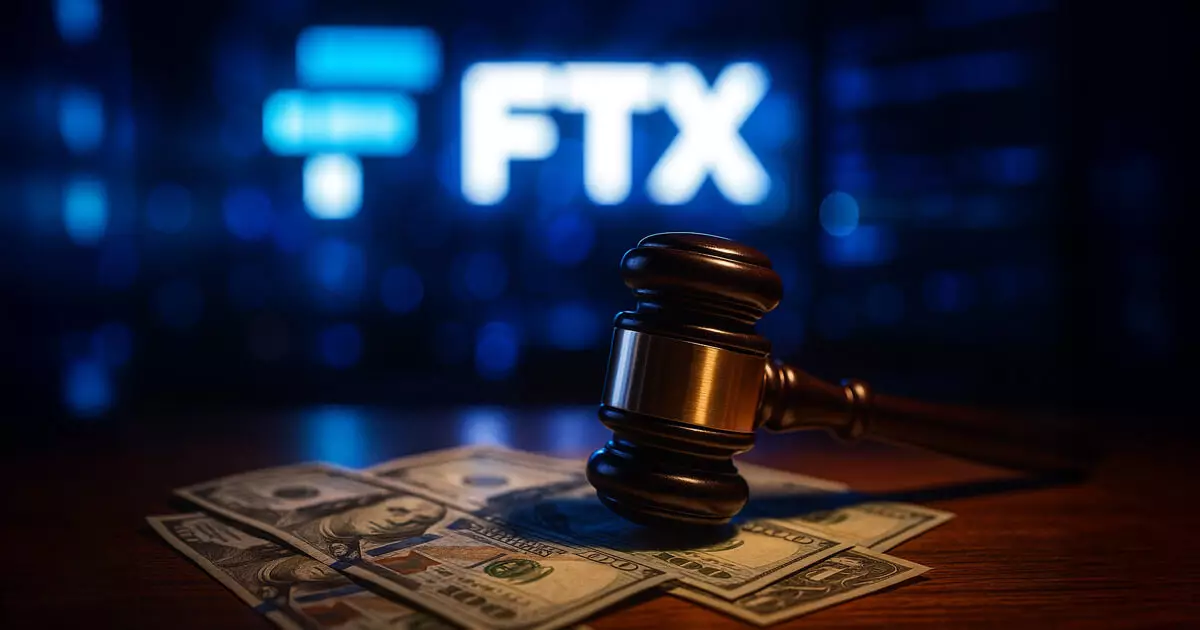The cryptocurrency market has been a high-stakes game where fortunes can evaporate overnight, and few events exemplify this better than the intertwined collapses of FTX and Three Arrows Capital (3AC). As FTX navigates its bankruptcy proceedings, a particularly audacious claim for $1.53 billion from 3AC has thrown a wrench into the already complicated legal landscape. This demand is not just questionable; it reflects a deeper moral failure by a company that gambled with reckless abandon and is now allegedly attempting to shift the burden of its catastrophic decisions onto others.
What remains clear from the dire situation of both companies is that 3AC’s financial strategies led them to a precipice. They heavily leveraged margins while seemingly ignoring fundamental market signals. The narratives surrounding such powerful financial entities often revolve around blame and accountability. In this case, FTX seems justified in pushing back against 3AC’s claims, as succumbing to them would set a troubling precedent that rewards poor judgment.
The Illusion of Victimhood
3AC has portrayed itself as a victim in this precarious situation, but this characterization lacks substance. By claiming losses stemming from FTX’s practices, they are attempting to create a narrative that excuses their own failures. When margin calls were breached and corrective measures were taken by FTX—measures that were clearly contractually supported—3AC remained unresponsive. It’s as if they were playing poker with their eyes closed, expecting the house to absorb their losses once the chips fell.
The company’s decision to withdraw $18 million worth of Ethereum while in breach of its margin requirements makes it clear that they had every opportunity to rectify their situation and failed to do so. For anyone who has any experience in finance, this behavior smacks more of desperation than accountability. The assertion that FTX somehow caused this downturn is akin to a gambler blaming the casino for their own bad luck.
Legal Maneuvering or a Case of Misplaced Blame?
In their court filings, FTX’s bankruptcy lawyers characterize 3AC’s claims as “illogical,” and rightfully so. The claim appears to serve as a lifeline to a company drowning in its own errors, one that is resorting to legal jujitsu in an attempt to extract value from those who have suffered. In this theatrical display of blame-shifting, FTX has also enlisted expert opinions that further dismantle 3AC’s frail legal posturing.
Critics of FTX may question the ethics of its liquidation practices, but the undeniable reality is that the firm acted within its contractual rights to stem the bleeding. FTX’s attorneys have convincingly argued that, had they not intervened, the losses would have only deepened. This is not an act of villainy but a necessary action taken to protect their remaining creditors, who are still licking their wounds from the ultimate collapse of the exchange.
Preserve the Integrity of the Process
It is crucial for FTX to maintain its stance against such exaggerated claims in the ongoing bankruptcy proceedings. Allowing 3AC to prevail would not only be an unfair redistribution of wealth but would also jeopardize the already precarious position of FTX’s legitimate creditors. The chaos of these legal battles represents more than just numbers; it impinges on the very fabric of trust and accountability that needs to be restored in the crypto market.
The legal timeline set forth, with 3AC required to file a formal response, provides a crucial opportunity for the court to assess the legitimacy of these claims rigorously. Any non-evidentiary hearings scheduled must focus on the implications of letting a failed hedge fund extract value at the expense of countless legitimate creditors.
Navigating the aftermath of these high-profile failures requires callous scrutiny of responsibility and a commitment to restore a sense of fairness in the market. 3AC’s behavior represents a dangerous slippery slope—one where accountability fades and misjudgments are rewarded rather than rectified. FTX is thus not merely defending itself; it’s protecting the foundational principles of justice that every financial entity should uphold.















